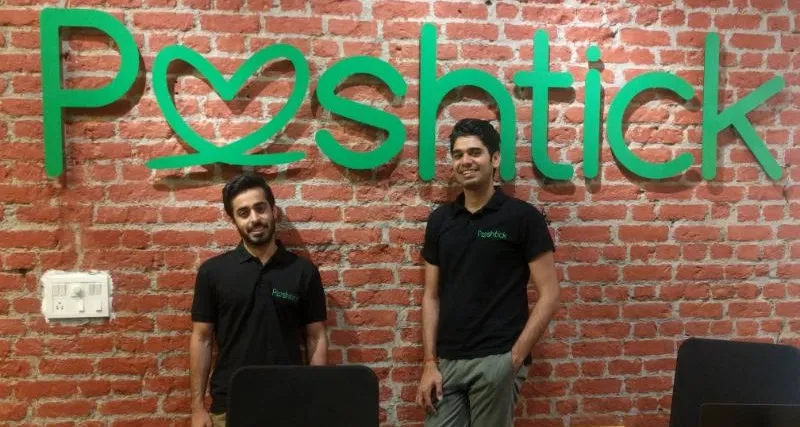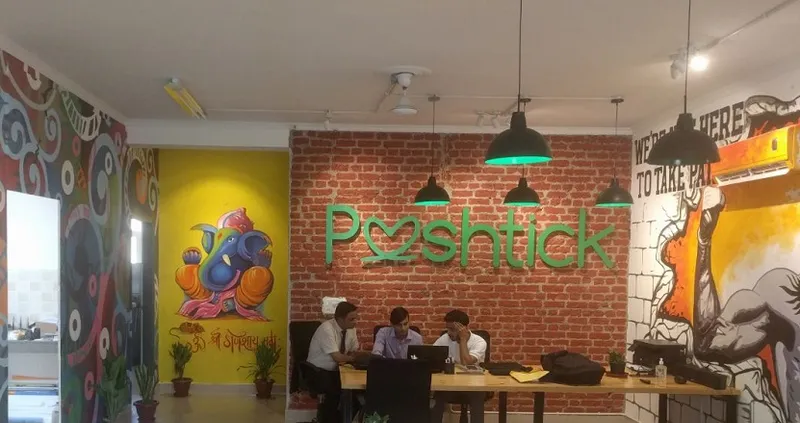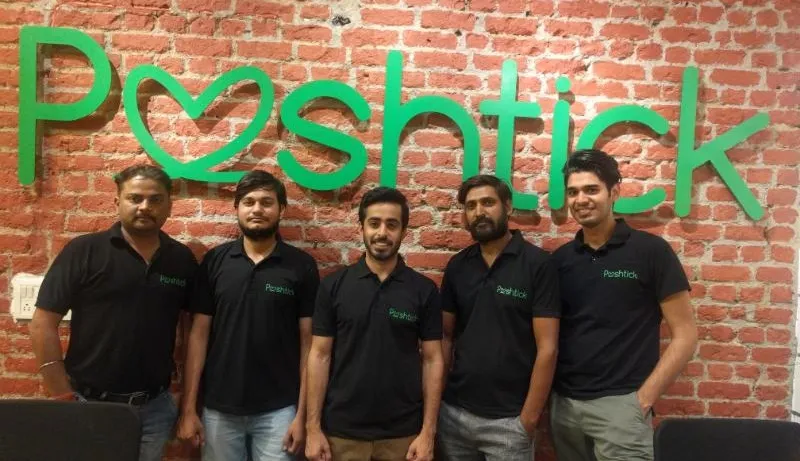Delhi-based Poshtick makes binge-eating healthy
Say goodbye to pakodas and chips. This startup gives you healthy snacks in a box.

The millennial generation, especially young professionals, rarely has time for four meals a day. Always in a hurry, a majority make do with just dinner and lunch. Only primary meals are monitored well, not the snack at 11.30 am or 4.30 pm. This mid-meal segment, where most people end up indulging in their favourite snacks such as chips, pakoda, and other greasy and sugary food, has escaped attention so far.
Poshtick—which means nutritious in Hindi—hopes to find a solution to this. The Delhi-based startup has an interesting story behind it.
Pranav Sharma (23) was a basketball player in school. But when he started studying chartered accountancy after school, his lifestyle changed completely. With long hours at his desk, he gained weight, and a busy schedule during his internship at Grant Thornton did not allow him time for gym or following a strict diet.
Making healthy meals for him separately was not easy for his mother who is also a chartered accountant. “There are not many healthy food options for middle-class people like us. As it is, the tendency to have unhealthy snacks every now and then is a major reason why youngsters tend to gain weight. I had to find a way out for myself, and gradually it became much bigger than that,” Pranav recollects.
Targeting professionals and students living away from home, mostly in the age group of 18-40, Pranav, along with fellow CA Kritik Thakur (26), co-founded Poshtick in early 2016. After months of research, they officially launched in September 2016.
Poshtick’s flagship product is the Finge (a portmanteau of 'fitness' and 'binge') Box, with three snacks and a healthy drink. Each item’s calorie and portion is clearly stated along with the items. Cookies, cakes, brownies etc., are among the 50 products that are divided into five categories. There is a separate box for diabetics, with items for preventive healthcare.
These boxes are available on weekly and monthly subscription, and all five boxes (only for weekdays) are delivered at your doorstep. The average order size is Rs 450-500. Trial boxes contain five healthy snacks and a beverage.
Art versus science
The biggest challenge for Poshtick was to get chefs and nutritionists on the same page and strike a balance between taste and health. Chefs had to prepare dishes that are tasty and rich in nutrients without artificial preservatives and flavours. For example, trail mixes come with curated berries and seeds that are uncooked.

Also, simple techniques like puffing technology are used to make puff wheat, which comes with different flavours like chocolate or masala. These can be eaten as namkeen or as cereals with milk. Poshtick’s whole wheat brownies have no sugar, maida or cocoa powder; it is made with chocolate without trans fats and hydrogenated fats. No product has sugar, but honey and jaggery are used as sweeteners.
Five products were launched in the first stage—wheat puff, brownie, rusk, chocolate ragi, and achari roti. For the pilot, the first hundred boxes were directly passed on to customers, and Pranav claims to have received good response.
Back to the basics
Food purchasing patterns of Indians suggest that they rarely buy online. In fact, Pranav has gone to supermarkets, just to observe how people behave at modern stores. He has found that they don’t care about prices of new products, and are always craving for variety. “Usually, nutritional channels are ignored. But this trend is now changing,” he says.
Pranav reiterates that they spend cautiously. According to him, sustainability depends on value not valuations. Poshtick now gets 20-30 percent margins with no discounts and cashback policies. However, there are free samples and referral programmes. Pranav is sure that what matters is a strong business model. He says that free samples often lead to orders.
Competition from veterans
Poshtick’s competitors are all veterans like Britannia and ITC, which provide healthy cookies. There are also startups like Snackible, Fabbox, and Evolve Snacks. Currently, they have more than 500 subscribers, with 10 percent repeat rate. Weekly number of orders is 40 on the website, in addition to those from Qtrove and Fitternity as well as offline channels. During Diwali, they made about Rs 4 lakh in five days.
Pranav adds, “We will spend more on digital marketing now. Word of mouth publicity has worked well so far. We need more offline and corporate tie-ups too.” They have already tied up with Dominos, EY, Samsung, and KPMG, among others.
Pranav and Kritik have found their mentors in Suresh Narayanan, Chairman and Managing Director, Nestle, food technologist Vinay Bishnoi, who was Head of Food Safety at Bharti Retail, and Amarjeet Sidhu, former CEO of Quality Foods. In October 2016, Poshtick raised Rs 3 crore from two high net-worth individuals (HNIs) based out of Noida—Bhavya Sharma and Amit Nagar.

Healthy future
Poshtick plans to move into a hybrid model, with more focus on offline channel. “We want to acquire customer offline and make them order online. Customer retention is hard online without marketing. Our targeting has to be more accurate—our emails should not go to the spam folder,” says Pranav.
Offline route gives more visibility without too much marketing. Poshtick is now focusing on building retail presence in Delhi-NCR, Kolkata, and Guwahati. They have planned to start with 200 offline retail stores in New Delhi. Poshtick has also tied up with Juice Maker in Bengaluru to showcase Poshtick products in those stores. There are also similar tieups with Fitternity, Qtrove and Fitmein.
Poshtick is targeting Rs 10 crore in revenue by March 2018. Currently it is Rs 20 lakh. They have plans to expand the team and focus on market research before starting operations in Mumbai, Pune, Bangalore, Hyderabad, and Chennai. Poshtick is currently a 10-member team.
Health, food, and education are believed to be recession-proof categories. With an amplified supply chain mechanism and distributor network, Poshtick can establish itself in a market that can easily accommodate multiple players.







